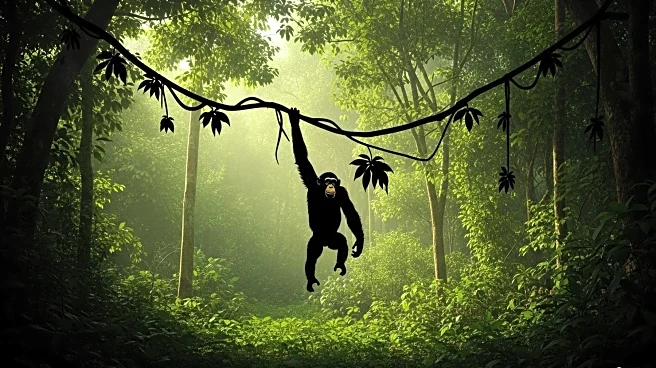What's Happening?
Jane Goodall, renowned for her groundbreaking research on chimpanzees, has died at the age of 91. The Jane Goodall Institute announced her passing due to natural causes while she was in California on a speaking tour. Goodall's work revolutionized the field of ethology, the study of animal behavior, and she was a fervent advocate for conservation. Her research in Tanzania during the 1960s challenged the scientific belief that only humans used tools, a discovery that significantly impacted the understanding of animal behavior. Goodall's legacy includes over 30 books and numerous documentaries, as well as the establishment of the Jane Goodall Institute, which continues to promote conservation efforts globally.
Why It's Important?
Jane Goodall's contributions to science and conservation have had a profound impact on environmental policies and the protection of endangered species. Her work has inspired generations of scientists and conservationists, emphasizing the importance of preserving natural habitats and biodiversity. Goodall's advocacy has raised awareness about the threats facing wildlife and the environment, influencing public policy and encouraging global conservation efforts. Her legacy continues to inspire action towards sustainable practices and the protection of the planet's ecosystems.
What's Next?
The Jane Goodall Institute will continue her mission, focusing on conservation and education initiatives worldwide. The Roots & Shoots program, which engages young people in environmental activism, will carry forward her vision of empowering individuals to make a positive impact. The scientific community and conservation organizations are likely to honor her legacy through continued research and advocacy, ensuring that her contributions to wildlife conservation remain influential.
Beyond the Headlines
Goodall's work has highlighted ethical considerations in the treatment of animals and the importance of understanding animal behavior in their natural habitats. Her approach to conservation has encouraged a holistic view of environmental protection, integrating scientific research with advocacy and education. The cultural impact of her work extends beyond science, influencing public perceptions of wildlife and the importance of conservation.









